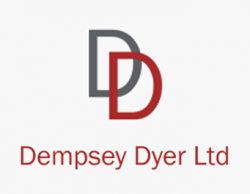Which material is best - PVCu, aluminium or timber

Posted on 03/09/2012
Peter Dyer, managing director of PVC-u and timber specialists Dempsey Dyer explains why he thinks there is no ‘best’ material – just what’s right for the customer and the application
‘What material is best – PVC-u, aluminium or timber?’ is one of the on-going debates within the window industry. It often provokes a passionate response from supporters of each frame material and is a question I have been giving particular thought to recently. On Friday November 2nd I am due to speak at the Homebuilding and Renovating Masterclass Programme and my presentation is entitled “Choosing the correct windows: the pros' and cons' of PVC, aluminium and timber materials.”
So what will I say in my presentation? Personally I don’t think there is a ‘best’ material; it depends on the customer’s taste, budget and the application.
Timber
Let’s start with timber. This is the most attractive frame material in my opinion and is best suited to the conservation marketplace where traditional aesthetics are so important. Timber has the flexibility of limitless section designs at relatively low cost (if the tooling is designed and managed in-house like we do at Dempsey Dyer). Timber pulls on our heart strings for whatever reason and if well designed, will last the longest of all the materials. In fact I’ve seen this first hand - Dempsey Dyer once completed a commercial refurbishment contract in Kent where the timber windows were over 120 year old! If managed from sustainable sources, timber has the least environmental impact due to its embodied carbon, extended product lifecycle and the fact it can be recycled.
The downside to timber is the extra cost. This is essentially due to the measures required in design to protect the timber from rotting or needing regular maintenance. Dempsey Dyer has manufactured windows with the correct drained and ventilated systems since 1993 and we have also continually improved the design when problems (which manifest themselves in expensive remedial’s for the business) occur.
I should point out that there are some very poor timber windows on the marketplace, normally found in the domain on the new build’s where cost is the prime concern of the decision-maker. Dempsey Dyer do not work in this marketplace and return tenders that are sent our way knowing we will not be competitive.
PVC-u
PVC-u meanwhile will be the leader in terms of volume in our industry for years to come. This is due to the price, fact it’s low maintenance, quick to manufacture and works! PVC-u an excellent product in the main and suitable for the vast majority of housing stock we have in the UK.
One of the downsides of PVC-u windows (I’m talking about the cheaper variety here) is the way they look. Design wise they can be quite plain and simple and can look tacky compared to a timber alternative.
However this isn’t true of all PVC-u windows and I wouldn’t say Dempsey Dyer’s products fall into this category. Our PVC-u frames are manufactured using Deceuninck’s 2500 chamfered, 2800 decorative and 3000 Zendow series profile systems. With carefully crafted soft, clean lines and smooth curves, the Zendow series is one of the best looking PVC-u systems on the market and the product is particularly popular with discerning, style conscious homeowners.
Not to mention our patented “Beaumont” window which elegantly bridges the gap further to our timber range.
Aluminium
Dempsey Dyer does not manufacture aluminium so I cannot speak with much authority on the product, but I can give my observations of where we have won and lost business to the material.
Aluminium is fantastic for curtain walling, shop fronts and commercial entrances due to its durability and strength. It also makes an excellent material for bi-fold doors and extremely slim sightline windows that neither PVC or timber can touch. This does appeal to some homeowners in the retail marketplace and I do like the look of it when installed. It is also the best product for achieving stringent wind load requirements.
One of the major reasons aluminium will never dominate in the retail sector is price. A cheaper PVC-u window will always win in in a cost sensitive market and I can’t see this changing anytime in the near future.
Conclusion
As I said at the beginning of the article, I don’t believe there is a ‘best’ material, just what’s right for the individual customer and application. I honestly don’t think there is much overlap in the market sectors - assuming we are looking a quality, well designed products in each sector - and consumers have never had it so good with the choices we give them. Our job is to ensure we get that value added message to the consumer so a fair margin can be achieved by all in the supply chain.


